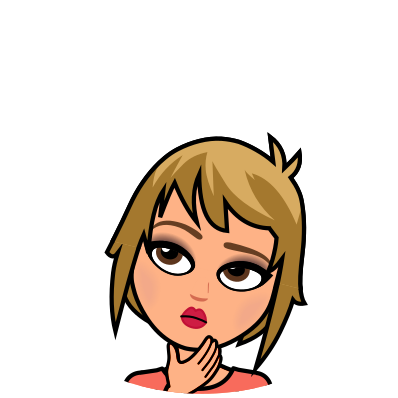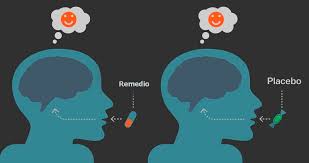7.3. The placebo effect
COMPRENSIÓN TEXTOS ESCRITOS
THE PLACEBO EFFECTJessica Glanville reports on the strange world of imaginary medicine.
The National Cycling Centre Manchester Velodrome, England. The Uk's top cyclists are in training, and are intrigued to hear that today they will be taking part in tests of a new and legal energy-boosting supplement. Unusually, the cyclists will have to complete two time trials around the velodrome. In time trials, cyclists have to give everything they've got to achieve the fastest time possible, and no cyclist would normally attempt another time trial until the following day. As the cyclists prepare for the second time trial, half receive what they are told are caffeine capsules. the other half are given the new supplement-apparently a special formula which the researchers say is reported to have improved performances significantly with other athletes. Even if the supplements worked, the tired cyclists would still be expected to go slower than on the first time trial,, but amazingly, half of those who took the new supplement put in a faster time, with one cyclist achieving a personal best. Some seem to have found the second ride easier: "I felt really tired before I took it", says one, but then "I got a bit of a burst of energy, and felt ready to go again". Everyone is excited about the new performance-enhancing substance...until the researchers tell them that none of the capsules contained any active ingredients. All the pills, even the "caffeine ones", were full of cornflour- they were placebos.
|
||||
Look at the text again and say who...
- received a placebo after being told it was likely to have a positive effect on them.
- didn't perform any better after taking a placebo.
- gave people placebos expecting them to have no effect whatsoever.
- felt better as a result of medical malpractice.
- developed the earliest theories on how major physical problems could have psychological causes.
- has the opposite reaction to most people when given some placebo pills.
- was keen on to be given a supply of sugar pills.
- can produce a similar effect to a placebo, using only words.
HEALTH COMPOUND WORDS
Find the match for each word creating a health compound word.
Reflection
What do you think? 
- Do you think some forms of alternative medicine rely purely on the placebo effect? Which ones? Why?
- Would you ever take part in drug trials? Why/ why not?
- Have you ever felt unwell and suspected it was for psychological, rather than physical reasons? What was the situation?
THE POWER OF PLACEBO
|
|
Watch the video and try to understand the general ideas. When finished, click on the "Read transcript" below to read everything you have listened to. |
In 1996, 56 volunteers took part in a study to test a new painkiller called Trivaricaine. On each subject, one index finger was covered in the new painkiller while the other remained untouched. Then, both were squeezed in painful clamps. The subjects reported that the treated finger hurt less than the untreated one. This shouldn't be surprising, except Trivaricaine wasn't actually a painkiller, just a fake concotion with no pain-easing properties at all. What made the students so sure this dummy drug had worked? The answer lies in the placebo effect, an unexplained phenomenon wherein drugs, treatments, and therapies that aren't supposed to have an effect, and are often fake, miraculously make people feel better. Doctors have used the term placebo since the 1700s when they realized the power of fake drugs to improve people's symptoms. These were administered when proper drugs weren't available, or if someone imagined they were ill. In fact, the word placebo means "I shall please" in Latin, hinting at a history of placating troubled patients. Placebos had to mimic the real treatments in order to be convincing, so they took the form of sugar pills, water-filled injections, and even sham surgeries. Soon, doctors realized that duping people in this way had another use: in clinical trials. By the 1950s, researchers were using placebos as a standard tool to test new treatments. To evaluate a new drug, for instance, half the patients in a trial might receive the real pill. The other half would get a placebo that looked the same. Since patients wouldn't know whether they'd received the real thing or a dud, the results wouldn't be biased, researchers believed. Then, if the new drug showed a significant benefit compared to the placebo, it was proved effective. Nowadays, it's less common to use placebos this way because of ethical concerns. If it's possible to compare a new drug against an older version, or another existing drug, that's preferable to simply giving someone no treatment at all, especially if they have a serious ailment. In these cases, placebos are often used as a control to fine-tune the trial so that the effects of the new versus the old or alternative drug can be precisely compared. But of course, we know the placebos exert their own influence, too. Thanks to the placebo effect, patients have experienced relief from a range of ailments, including heart problems, asthma, and severe pain, even though all they'd received was a fake drug or sham surgery. We're still trying to understand how. Some believe that instead of being real, the placebo effect is merely confused with other factors, like patients trying to please doctors by falsely reporting improvements. On the other hand, researchers think that if a person believes a fake treatment is real, their expectations of recovery actually do trigger physiological factors that improve their symptoms. Placebos seem to be capable of causing measurable change in blood pressure, heart rate, and the release of pain-reducing chemicals, like endorphins. That explains why subjects in pain studies often say placebos ease their discomfort. Placebos may even reduce levels of stress hormones, like adrenaline, which can slow the harmful effects of an ailment. So shouldn't we celebrate the placebo's bizarre benefits? Not necessarily. If somebody believes a fake treatment has cured them, they may miss out on drugs or therapies that are proven to work. Plus, the positive effects may fade over time, and often do. Placebos also cloud clinical results, making scientists even more motivated to discover how they wield such power over us. Despite everything we know about the human body, there are still some strange and enduring mysteries, like the placebo effect. So what other undiscovered marvels might we contain? It's easy to investigate the world around us and forget that one of its most fascinating subjects lies right behind our eyes.
Licensed under the Creative Commons Attribution Share Alike License 4.0
